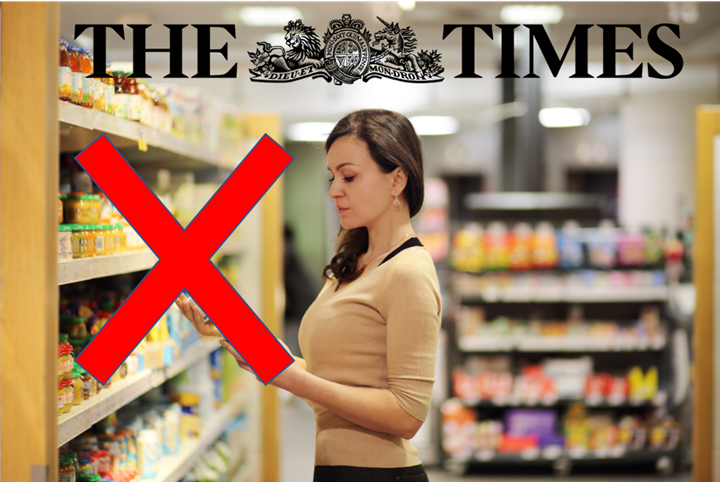When it was suggested that I write a blog about the European Union’s (EU’s) Nutrition and Health Claims regulation (NHCR), I’ll be honest – my heart sank! It’s a tricky area in anyone’s book, and I’ve never quite trusted my knowledge and understanding enough to explain it to someone else – and I’m saying that as someone who works at ANH-Intl and therefore probably knows its implications more than most! Perhaps that makes me the perfect person to write this blog, though...
I thought the best way to do this was to break it down into bite-size pieces – the what, where, why and how approach. Here goes.
What is the NHCR?
The NHCR is a European regulation that controls, or regulates, what health claims can be made by “Food Business Operators” (FBOs) about a food, food ingredient or product in any commercial context. FBOs can be manufacturers, distributors or practitioners – anyone who is selling food or food supplement products commercially. The NHCR covers health claims in all media, whether written, pictorial, spoken or video – on all commercial presentations, be they websites, adverts, youtube videos or social media.
But what exactly is a health claim? A health claim is a statement made about the food or product and its effect, or benefit, on someone’s health, e.g. “vitamin C prevents colds”, “magnesium helps to maintain normal blood pressure”, etc. It’s important to separate health claims such as these from the other type of claims regulated by the NHCR, i.e. nutrition claims such as “low fat” or “high in fibre”.
Health claims are split into four categories:
- General function [Article 13(1)]
- Emerging science [Article 13(5)]
- Disease risk reduction [Article 14(1)a]
- Children’s health [Article 14(1)b].
The European Commission (EC) told us that the NHCR would prevent dodgy, scientifically unsupported claims from being made that would “mislead” the public about the health benefits of products. In NHCR-world, even pictures on labelling are viewed as a commercial form of communication. A picture of an eye on a product containing lutein, for example, would only be allowed if accompanied by an authorised, specific health claim that meets the specific conditions of use stated in the EU’s Nutrition and Health Claims Register.
How is it decided which claims are allowed, and which claims are not?
The EC states on its website that health claims must be “accurate and based on evidence accepted by the whole scientific community”. That means you need to prove cause and effect – something that I'm led to believe is a lot easier said than done. What it also means is that newly proposed health claims that don’t meet the required level of scientific evidence won’t be authorised, and will be illegal in the EU marketplace in that form. The body doing the scientific evaluation of the claims is the European Food Safety Authority (EFSA), but the final authorisation comes from the EC.
When the NHCR first came into effect in 2007, thousands of claims were evaluated in this way – this has resulted in the authorisations and ‘non-authorisations’ we see today in the Register. Authorised claims are greenlighted throughout the EU, and non-authorised ones are banned – EU-wide. Only 250 claims have been authorised so far, not many when you consider that there are many tens of thousands of different foods and ingredients on the market. If you now want to authorise a new claim through the emerging science (Article 13.5) portal, it’s very tough to get through the door. It’s so tough, in fact, that only one claim, for sugar beet fibre increasing faecal bulk (I know what I’m having for dinner!), has so far been authorised in this way!
The NHCR’s ‘transitional’ measures do give some leeway to existing health claims that have been used while the EC and EFSA deliberate on around 1600 botanical claims, the evaluation of which has been on hold for several years now. But that only serves to delay the pain, rather than eliminate the injury.
This sounds like a good thing though, right?
On the surface, yes. There have been some really outlandish claims out there – especially on the Internet – and the public deserves to be protected from them. No-one should be buying something on the promise it will do something when it absolutely, unequivocally won’t. However, the real problem is EFSA’s strict cause-and-effect approach to the assessment of claims, and this approach, it says, it can’t change because it got its remit from the EC. EFSA has moved very close to the pharmaceutical model in evaluating foods – it particularly focuses on randomised, controlled clinical trials in humans, and won’t even consider evidence from non-human species, e.g. mouse and rat studies. All this other evidence is relegated to the box marked ‘secondary’. Needless to say, the trials required are highly expensive and beyond the reach of most companies in the natural health sector.
Many claims are have been denied successful authorisation because of negative EFSA opinions. One that stood out for me was that “drinking water prevents dehydration and maintains bodily performance”. Even the “prunes facilitate bowel function” was initially rejected by EFSA, although it has now been approved. If these very obvious health benefits are being dismissed and the claims disallowed, how many others are disappearing right before our eyes?
How will the effect of the NHCR be noticed?
You know how, when you’re not sure what something is or what it does, you pick it up and scan the label for information about that product? Well, as the NHCR health claims regime comes into full force, the information consumers will see is likely to be very non-descriptive, and not particularly helpful in terms of guiding them to decide what product is best for them to buy. Especially when so much of the stuff that’s really good for us will be claim free – and the stuff carrying lots of claims is the processed food made by Big Food! Here’s an example: we know berry fruits like blackcurrants and blueberries are good for our health because they have powerful antioxidant effects, but EFSA have not approved a single antioxidant claim for berries. So we can say nothing commercially in the EU about the health benefits of berries!
It gets worse. Non-specific health claims, such as “oily fish is good for you,” will have to have an authorised general function claim, otherwise they won’t be allowed. Well-known descriptive terms like “digestif”, “cough drops”, “tonic water” and “digestive biscuit” – known as ‘generic descriptors’ – are likely to disappear under the NHCR, as EFSA and the EC believe they may imply a health or nutritional benefit.
How can practitioners and others find out what claims are authorised?
You will now realise just how important the ‘EU Register of Nutrition and Health Claims’ is for those in the food business. But what about practitioners? Are they food business operators? Interpretations vary depending on who you speak to, but if they are selling product it would seem they fulfil the definition. In terms of products containing herbs – often called ‘botanicals’ – EFSA’s assessment of these health claims is currently on hold following widespread complaints. Not surprising really, as 97% of the proposed claims were initially rejected! EFSA is considering whether to change its approval process by considering evidence from long-term traditional use and knowledge of herbs, for example by medicinal systems such as Indian Ayurveda or traditional Chinese medicine (TCM). However, at the moment, health claims relating to herbs, many phytonutrients, mushrooms and algae do not yet feature on the EU Register.
For more information see our flyer entitled “Health Claims in Europe”.







Comments
your voice counts
There are currently no comments on this post.
Your voice counts
We welcome your comments and are very interested in your point of view, but we ask that you keep them relevant to the article, that they be civil and without commercial links. All comments are moderated prior to being published. We reserve the right to edit or not publish comments that we consider abusive or offensive.
There is extra content here from a third party provider. You will be unable to see this content unless you agree to allow Content Cookies. Cookie Preferences